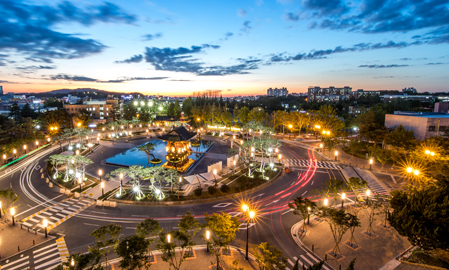
The College of Human Ecology started its history with the Department of Home Economics Education in 1972 and then was established independently as the College of Human Ecology in 1991 with changing the nature of college and of Korean society.
The major purpose of the College is to train students to become professionals in order to improve the quality of human life.
The College consists of 4 departments including Department of Food Science and Human Nutrition that cultivates experts for food and nutrition through researching and getting educated for cutting edge life science; Department of Child Studies that focuses on training students for promoting welfare of child, adolescents, and families; Department of Fashion Design that has objective for nurturing experts for fashion industry through developing creative design ability; and Department of Housing Environmental Design that fosters professionals for producing future-oriented and environmental-friendly residential space.
The College is also specialized for connecting various theories of human ecology into practical fields. The Research Institute of Human Ecology, an affiliated institution of the College, takes key roles in joint researches between departments, university-industry cooperation, and exchanges with related organizations in local communities. Moreover, the College is operating various centers and agencies on consignment such as Jeonju Healthy Family Support Center, Center for Children’s Foodservice Management, Agency for Fostering & Educating Child Caregivers, and Agency for Personalized Nutrition Management for Cancer Patients so as to provide valuable opportunities for undergraduate and graduate students to develop practical abilities in various fields and to contribute to improvements of individual and family’s quality of life in the local communities.
The 21st century is the period that people put most emphasis on the quality of life. Students are expected to put together their knowledge and develop their competencies to become an outstanding expert to make more mature society in the context of child, family, food, clothing, and housing which are the components most closely connected with the human life.
